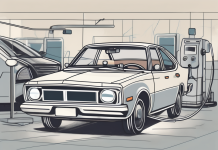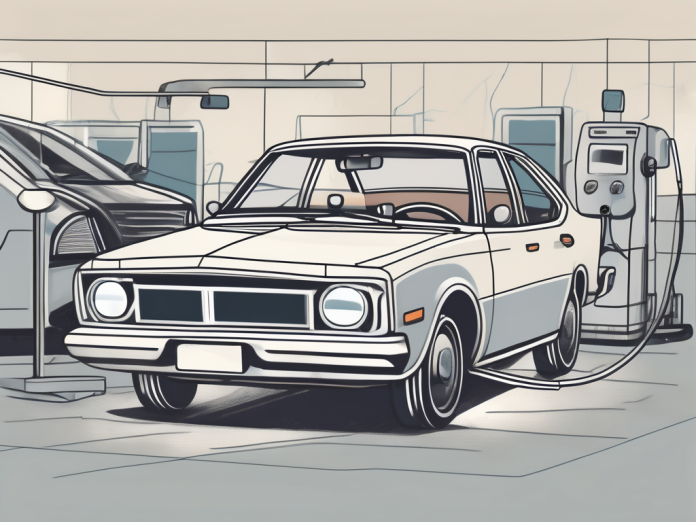Are you in the market for a used car? Buying a used car can be a great option for many reasons. It can save you money, allow you to get a higher-end model for less, and give you more choices than buying new. However, purchasing a used car requires careful consideration and research to ensure you make the right choice. In this article, we will explore the essential factors to consider when buying a used car to help you make an informed decision.
Understanding the Basics of Used Car Buying
Before diving into the details, it is important to understand the basics of used car buying. When you buy a used car, you are purchasing a vehicle that has had previous owners. Used cars can come from various sources, including private sellers, dealerships, and online platforms. It is crucial to be aware of the advantages and potential risks associated with each source.
The Importance of Research in the Buying Process
Research is key when buying a used car. Start by determining the make and model that suits your needs and preferences. Consider factors such as reliability, fuel efficiency, safety ratings, and maintenance costs. Research the typical prices for the specific make and model you are interested in to ensure you get a fair deal.
Furthermore, gather information about the car’s history. Request the vehicle identification number (VIN) from the seller and obtain a vehicle history report. This report will reveal crucial details such as previous accidents, ownership history, and any outstanding recalls.
Setting a Budget for Your Used Car Purchase
Now that you have done your research, it’s time to set a budget for your used car purchase. Consider your financial situation, including your income, expenses, and other financial obligations. Decide on the maximum amount you are willing to spend and stick to it.
It is important to remember that the purchase price is not the only cost associated with buying a used car. Factor in additional expenses such as taxes, registration fees, insurance, and ongoing maintenance costs. This comprehensive approach will help you avoid exceeding your budget and ensure you can afford the car in the long run.
Evaluating the Condition of the Used Car
Once you have narrowed down your options and set a budget, it’s time to evaluate the condition of the used car you are interested in. This step is crucial to avoid buying a car with hidden issues or costly repairs.
Checking the Vehicle History Report
A vehicle history report provides valuable insights into the car’s past. Look for any red flags such as salvage titles, reported accidents, or odometer discrepancies. These can indicate potential problems or indicate a car that may not be a good fit for your needs. Additionally, the report may include information about previous maintenance and service records, offering peace of mind.
Importance of a Pre-purchase Inspection
Even if the vehicle history report checks out, it is still important to get a pre-purchase inspection before finalizing the deal. Hire a certified mechanic to thoroughly inspect the car for any hidden issues. The mechanic can identify potential problems with the engine, transmission, suspension, and other vital components. This inspection can save you from expensive repairs down the line and provide additional bargaining power.
Negotiating the Price of a Used Car
Once you have assessed the condition of the car and are satisfied with its history, it’s time to negotiate the price. Negotiating can be intimidating, but with the right approach, you can secure a fair deal.
Tips for Effective Price Negotiation
When negotiating the price of a used car, it is essential to be well-informed and confident. Research the market value of similar cars in your area to have a baseline for negotiations. Be prepared to walk away if the seller is not willing to meet your desired price. Remember, there are plenty of other options out there.
Additionally, consider negotiating for extras such as a warranty, free maintenance, or a lower interest rate if you are financing the car. These extras can add value to your purchase and offset the price difference.
Understanding the Market Value of Used Cars
Understanding the market value of used cars is crucial in negotiations. Factors such as the car’s age, mileage, condition, and demand in the market can affect its value. Be mindful of any additional features or upgrades that may contribute to its worth. By having a comprehensive understanding of the market value, you can ensure you are not overpaying.
Securing Financing for Your Used Car
If you require financing for your used car purchase, it is important to explore different financing options to find the best terms and rates.
Exploring Different Financing Options
Several financing options are available for used car purchases, including banks, credit unions, and online lenders. Compare interest rates, loan terms, and repayment options to find the most suitable option for your financial situation. It is also worth considering pre-approved financing, as it provides a clear budget and can enhance your negotiating power.
The Role of Credit Score in Used Car Financing
Your credit score plays a vital role in securing financing for a used car. Lenders use your credit score to determine your creditworthiness. A higher credit score can help you qualify for better interest rates and loan terms. Before applying for financing, review your credit report for any discrepancies and take steps to improve your score if necessary.
Finalizing the Purchase of a Used Car
After completing all the necessary research, inspections, and negotiations, you are ready to finalize the purchase of your used car.
Understanding the Paperwork Involved
When buying a used car, there is specific paperwork that needs to be completed. This includes the title transfer, registration, and any warranties or service agreements. Review and understand each document before signing to avoid any surprises. If you are unsure about any aspect of the paperwork, seek professional advice.
Tips for a Smooth Transaction
To ensure a smooth transaction, it is essential to communicate clearly with the seller or dealership. Arrange a convenient time and place for the exchange of money and documents. Consider bringing a friend or family member for support and as an extra pair of eyes. Finally, double-check all details, including the vehicle identification number and agreed price, before finalizing the purchase.
Buying a used car can be an exciting and rewarding experience when approached with caution and thorough research. By understanding the basics of used car buying, evaluating the condition of the vehicle, negotiating the price, securing financing, and finalizing the purchase, you can make a smart and informed decision. Remember, buying a used car allows you to find a reliable, high-quality vehicle at a more affordable price. Happy car hunting!




























